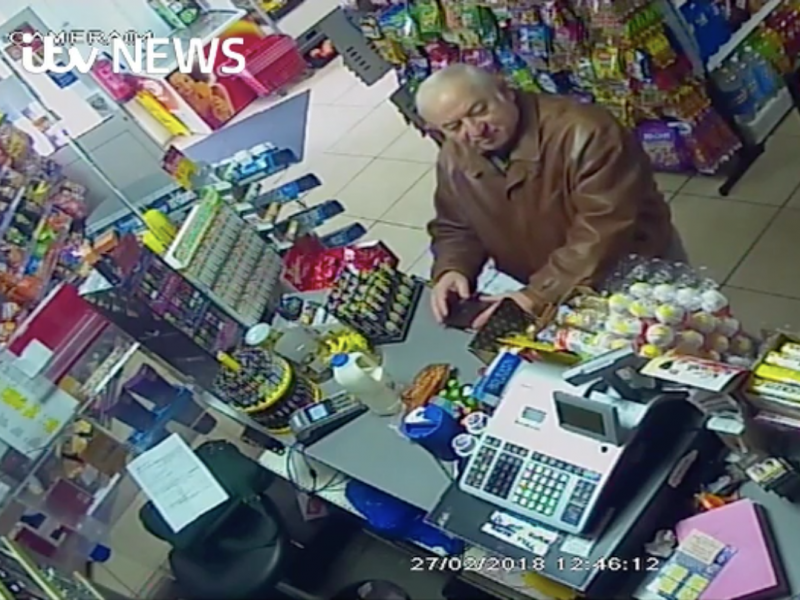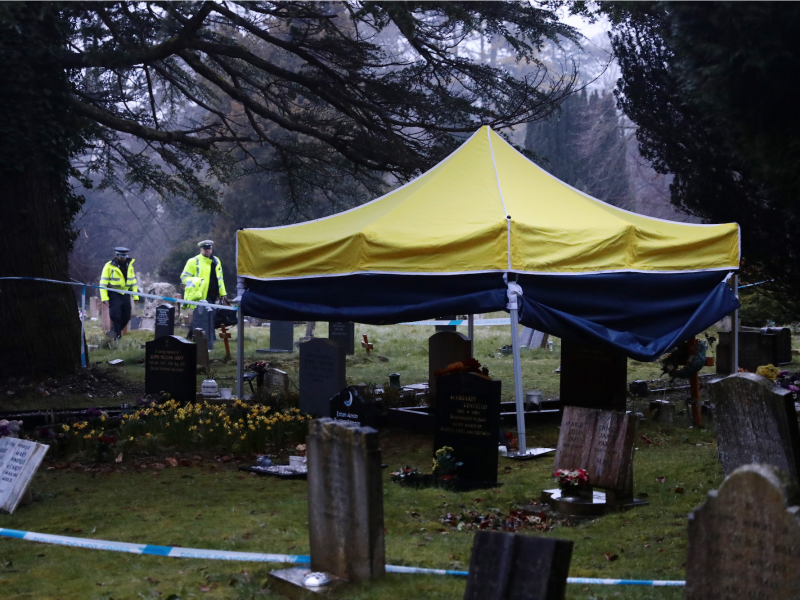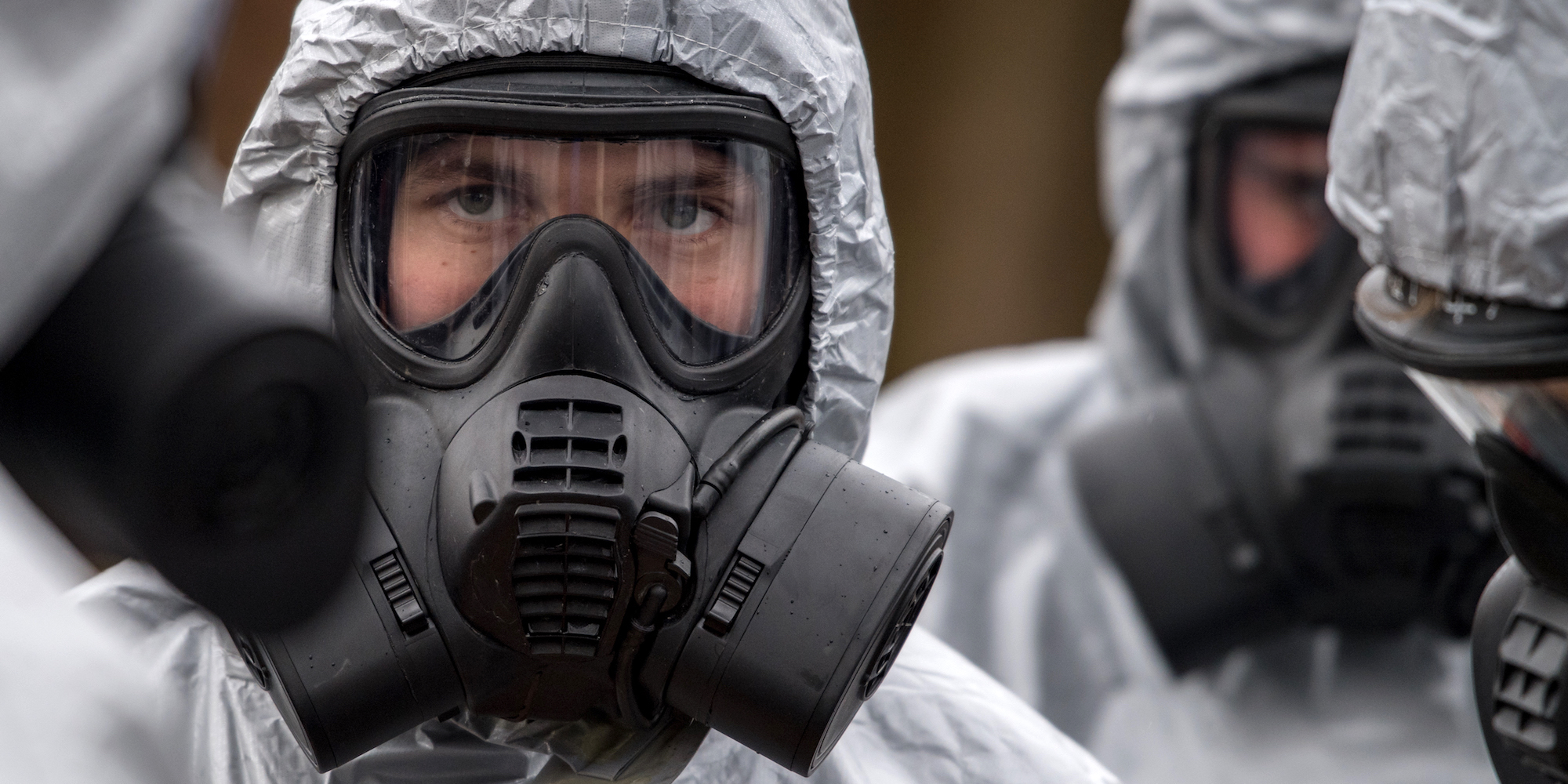- Double agent Sergei Skripal was poisoned with nerve agent Novichok, Theresa May has said.
- Novichok nerve agents are Cold War-era chemical weapons, up to ten times more deadly than the notorious XV nerve agent used in other assassinations.
Theresa May has officially pointed the finger at Russia over the attempted assassination of double agent Sergei Skripal in Salisbury, England, saying on Monday it is “highly likely” that the country was responsible for the attack.
The British Prime Minister also provided more information on the deadly nerve agent used to target the former Russian spy – saying it was “Novichok,” a family of poisons developed by the Russian government during the Cold War.
“Based on the positive identification of this chemical agent by world-leading experts at the Defence Science and Technology Laboratory at Porton Down … the Government has concluded that it is highly likely that Russia was responsible for the act against Sergei and [his daughter] Yulia Skripal,” May said.
Novichok is a family of fourth-generation nerve agent, developed from the late 1980s onwards, according to the Weapons of Mass Casualties and Terrorism Respond Handbook by Charles Edward Stewart.
Its name roughly means "newcomer," and the chemicals can be as much as ten times more toxic than notorious nerve agent XV, Stewart wrote, while being far more resistant to antidotes. (It was XV that was used by North Korea to kill the half-brother of Kim Jong-un in 2017.)
Additionally, Novichok nerve agents "can be made with common chemicals in relatively simple pesticide factories" - making it more difficult to detect its manufacture and regulate the raw materials used to make it.

Nerve agents can take the form of gas, aerosol, or liquid, and enter the body through inhalation, the skin, or the consumption of liquid or food contaminated with them, the Organisation for the Prohibition of Chemical Weapons (OPCW) said.
It's still not clear when or how the Skripals were exposed to the chemicals and how much was administered to them.
Symptoms include restlessness, loss of consciousness, wheezing, and a running nose, according to the Centers for Disease Control. When administered in high doses, nerve agents can suffocate victims to death within a couple of minutes, the OPCW said.
A witness at Zizzi, the restaurant where the Skripals were eating before they collapsed, told the BBC that the elder Skripal "seemed to lose his temper" and "just started screaming at the top of his voice, he wanted his bill and he wanted to go."
Another witness who saw the stricken Skripals later on said Yulia "looked like she had passed out" and Sergei "was doing some strange hand movements, looking up to the sky."
The pair remain critically ill in hospital. Police officer Nick Bailey has also been hospitalised after being exposed (though it's not yet clear where), and more than 20 people have been treated.

Theresa May said that it is "clear" that Yulia and Sergei Skripal were poisoned by a Novichok nerve agent - suggesting that either Russia is behind the attack or that it has lost control of its stores of nerve agents.
"Based on the positive identification of this chemical agent by world-leading experts at the Defence Science and Technology Laboratory at Porton Down; our knowledge that Russia has previously produced this agent and would still be capable of doing so; Russia's record of conducting state-sponsored assassinations; and our assessment that Russia views some defectors as legitimate targets for assassinations; the Government has concluded that it is highly likely that Russia was responsible for the act against Sergei and Yulia Skripal," she said.
"Mr Speaker, there are therefore only two plausible explanations for what happened in Salisbury on the 4th of March.
"Either this was a direct act by the Russian State against our country. Or the Russian government lost control of this potentially catastrophically damaging nerve agent and allowed it to get into the hands of others."
